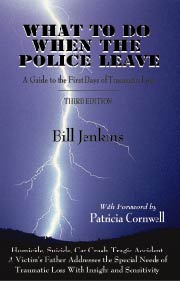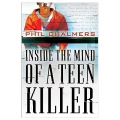Murder victim’s family: A ‘just’
outcome
Wallick of second-degree murder. He’ll get life in prison without parole.
York, PA –
Jordan Wallick shook, visibly, as the jury filed into Courtroom No. 10
after 3 1/2 hours of deliberations. The gallery was packed, mostly staff from
the York County District Attorney’s office, hoping to see justice for one of
their own, James Wallmuth III, the man the 17-year-old defendant was accused of
killing.Wallmuth had worked in the district attorney’s office for four years before
he decided to enroll in law school. He was home, working an internship after his
first year, when he was shot and killed July 28, 2010, in a botched robbery. He
was 28.
His family sat in the front two rows of the courtroom gallery as the jury
entered. Jurors did not make eye contact with the defendant as they
filed in. Judge Michael Bortner asked the
jury if it had reached a verdict. It had. On the count of first-degree murder,
the jury found Wallick not guilty. There was a gasp in the courtroom. Members of Wallick’s family quietly cheered.
The jury wasn’t finished.
On the count of second-degree murder: Guilty.
On the count of robbery: Guilty.
On the count of conspiracy: Guilty.
Members of Wallmuth’s family wept. As he was being led from the courtroom, to
return to jail, Wallick turned to his family and mouthed the words, “Don’t cry.”
Afterwards, prosecutor Karen Comery said the case was a tough one for her.
She knew Wallmuth from his time in the D.A.’s office. And it was different from
other homicide cases her office is accustomed to prosecuting.
“Most homicides in York City involve drugs or are gang related,” she said.
“In this case, we had a botched robbery of an unarmed man, a true victim.”
Wallmuth’s father, Jim, said the family thanks the district attorney’s office
and the York City police for the work they did bringing their son’s killer to
justice.
“It’s an outcome we think is just for our son and our family,” he said.
Comery said the second-degree murder conviction was appropriate.
Second-degree murder is a killing committed during the commission of a felony —
in this case, the robbery. Both first- and second-degree murder carry the same
sentence, mandated by law: life in prison without the possibility of parole.
Wallick will be formally sentenced May 21.
Wallmuth, his father said, would have graduated from law school five weeks
from today.
“He was successful at everything he ever did,” his father said. “There is so
much you could say about him. He was a good son. We were always very proud of
him.”
The case is not over. Wallick’s co-defendants — Kenneth Santiago-Curet, 20;
Victor Virola, 19, and Joshua Edmoundson, 20 — all remain charged with
second-degree murder and conspiracy. They all testified against Wallick in hopes
of making deals for reduced charges and avoiding life in
prison.
Defense attorney Dawn Cutaia said her client had tears in his eyes when the
verdict was read.
“He’s not a dumb kid,” she said. “He understands what’s going on. But at 17,
I’m not sure he understands the gravity of it. I’m not sure he will for a long,
long time.”
—
Wallick’s palm print, found on the back of the bench Wallmuth was sitting on
when he was shot, was a key piece of physical evidence, drawing attention from
both attorneys during closing arguments.
Cutaia began her closing argument by saying, “We can all agree that a palm
print on a public park bench is not enough.”
The jury apparently agreed with Comery, who countered, “The defense would
have you believe that the palm print magically appeared there. What are the
odds? You have better odds of hitting the Powerball.”
Cutaia also attacked the credibility of Wallick’s co-defendants. She called
the co-defendants’ testimony “corrupt and polluted,” noting that “they have
every reason to lie.” She also pointed out the inconsistencies in their
testimony.
The two jailhouse witnesses who testified that Wallick confessed while in the
York County Prison are “going to be in and out of jail all of their lives,”
Cutaia said, and they would say anything to try to obtain a get-out-of-jail-free
card.
Comery argued that the witnesses have “sufficient credibility … to convict
Jordan Wallick,” that they were consistent in the significant part of their
testimony, that Wallick shot Wallmuth during a botched robbery.
She reminded the jury of the testimony of eyewitnesses, one of whom recalled
Wallmuth saying, as he lay dying: “I didn’t see him. I didn’t know him. He tried
to get my phone. My phone. It hurts.”
Reaction on Facebook
“It is a sad day. Two families are without their sons now. Verdict is
appropriate, it is just sad that these kids did this.” — Tony Matero
“I think it’s sad that someone so young is never going to get a chance to
truly experience “life” because he will be serving a life sentence, although it
is a fair and just decision as well as a lesson for the rest of our youth that
the justice system isn’t cutting breaks no more due to age.” –Michelle Little
” ‘He was so young,’ but he thought he was old enough to use a gun and take
someone’s life. So should he be able to ‘truly experience life’ when he ended
another’s so early?”
Wallick: Experts’ analysis
From a story by Daily Record/Sunday News staffer Rick Lee in the Feb. 6,
2011 York Sunday News:
Accused of murder, Jordan Wallick is too young for medical science to
classify him as antisocial. But Dr. Larry Rotenberg, a forensic psychiatrist,
swore under oath that when the boy turns 18 on Jan. 20, 2013, the label will
fit.
At Wallick’s hearing last week in the York County Judicial Center where the
16-year-old was seeking to have his charges transferred to juvenile court,
Rotenberg went farther, calling him a sociopath and, according to Wallick’s
attorney, a psychopath.
He said the five years Wallick would spend in the juvenile system before
being released at age 21 is nowhere close to the time needed to rehabilitate
him.
… Over the years, Wallick had been court-ordered to submit to repeated
psychiatric examinations, according to testimony at the hearing. Rotenberg, who
testified for the commonwealth, and a clinical psychologist who testified for
the defense at last week’s hearing agreed that Wallick is a troubled youth from
a severely unstable family, is prone to violence, has little if any empathy for
others and was largely a product of his environment.
They disagreed whether the boy is salvageable.
Hugh Sanford Smith, the clinical psychologist, said Wallick did display some
“mid-range” psychopathic tendencies but also said, “It would be appropriate to
consider treatment” in the juvenile system.














